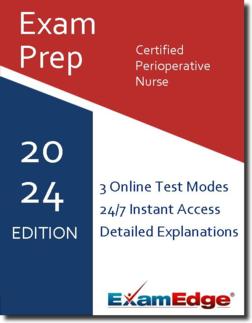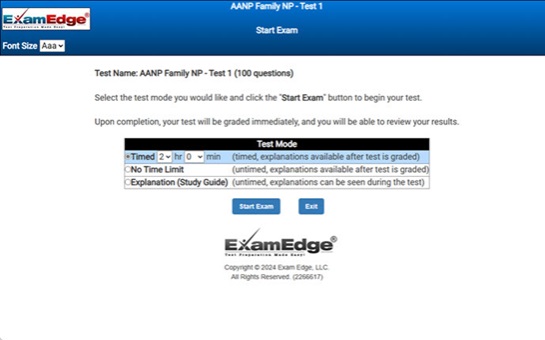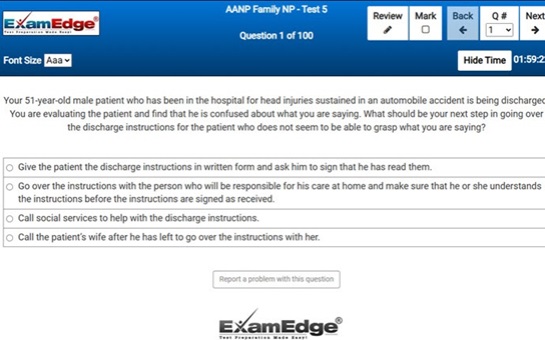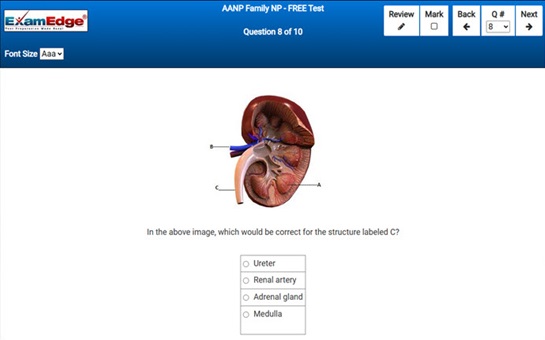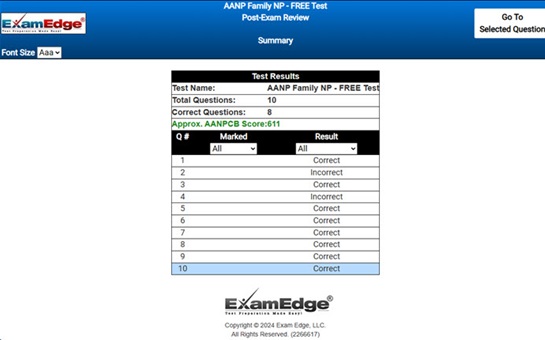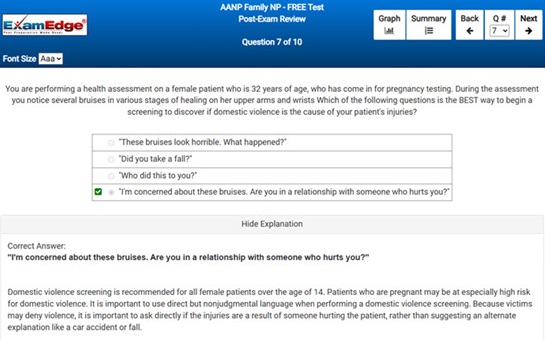Exam Edge Practice Tests for CCI Certified Perioperative Nurse (CNOR)
CCI, CNOR, Competency & Credentialing Institute® are registered trademarks of Competency and Credentialing Institute.
This website is not endorsed or approved by Competency and Credentialing Institute - Topics
Get Instant Online Access Now!
** Sample images, content may not apply to your exam **
Understanding what is on the CCI Certified Perioperative Nurse exam is crucial step in preparing for the exam. You will need to have an understanding of the testing domain (topics covered) to be sure you are studing the correct information.
- Directs your study efforts toward the most relevant areas.
- Ensures efficient and adequate preparation.
- Helps identify strengths and weaknesses.
- Allows for a focused approach to address gaps in understanding.
- Aligns your preparation with the exam's expectations.
- Increases the likelihood of success.
- Keeps you informed about your field's current demands and standards.
Select Your Test Bundle
Excellent
CCI Certified Perioperative Nurse (CNOR) Shortcuts
General Exam Info
Exam Topics
Features
Study Plan Tips
Test Reviews
Why Exam Edge?
FAQ
Take a FREE Test
Understanding the exact breakdown of the CCI Certified Perioperative Nurse test will help you know what to expect and how to most effectively prepare. The CCI Certified Perioperative Nurse has multiple-choice questions The exam will be broken down into the sections below:
| CCI Certified Perioperative Nurse Exam Blueprint | ||
|---|---|---|
| Domain Name | % | Number of Questions |
| Preoperative Patient Assessment and Diagnosis | 12% | 12 |
| Perioperative Plan of Care | 10% | 10 |
| Intraoperative Activities | 27% | 27 |
| Communication | 10% | 10 |
| Transfer of Care | 6% | 6 |
| Instrument Processing and Supply Management | 9% | 9 |
| Emergency Situations | 11% | 11 |
| Management of Personnel, Services, and Materials | 6% | 6 |
| Professional Accountability | 9% | 9 |
CCI Certified Perioperative Nurse - Exam Topics Sample Questions
|
|
|
|

